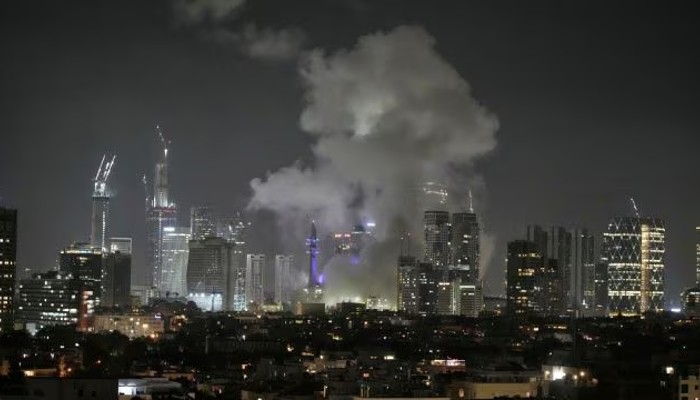Iran Summons UK Diplomat Over Arrests of Nationals in Terror Probes

Iran has summoned a senior British diplomat in Tehran following the arrest of several Iranian nationals in the United Kingdom on suspicion of terrorism and national security offences.
Iran protests UK arrests of its nationals over terror charges, calling the move baseless and politically motivated. Three Iranians face national security charges.
Iran’s Ministry of Foreign Affairs said on Sunday that it had summoned the United Kingdom’s chargé d'affaires in Tehran to lodge a formal protest over the arrests, describing them as “unlawful and baseless.”
In the absence of the British ambassador, the UK diplomat was received by Shahram Ghazizadeh, Director of the Ministry’s Western Europe Department, who conveyed Tehran’s strong objections.
The arrests took place during two separate operations carried out by British counter-terrorism officers on 3 May. Eight men were detained, including seven Iranian nationals. Three of those arrested have since been charged under the UK’s National Security Act.
A statement from the Iranian Foreign Ministry said Tehran was demanding an explanation from the UK government regarding the legal justification for the arrests. The ministry also criticised what it said was a failure by British authorities to promptly inform the Iranian embassy or allow consular access to the detainees.
Ghazizadeh warned that the UK would bear responsibility for the “consequences of politically motivated actions,” claiming that the move was designed to exert pressure on Iran.
According to London’s Metropolitan Police, three men — Mostafa Sepahvand, 39, Farhad Javadi Manesh, 44, and Shapoor Qalehali Khani Noori, 56 — were arrested at separate addresses in London on 3 May. The police allege that the men engaged in activities intended to assist a foreign intelligence service.
The charges relate to Section 3 of the United Kingdom’s National Security Act 2023, which prohibits conduct likely to aid a foreign state’s intelligence operations. Authorities have identified Iran as the state involved.
The men are accused of conducting surveillance on individuals connected with Iran International, a Persian-language news channel based in London that has previously been targeted by threats believed to originate from Iran.
In a statement released on Friday, UK police confirmed the trio had been charged with “assisting a foreign intelligence service” between August 2024 and February 2025. All three are expected to appear in court in the coming weeks.
The other five men detained during the same operation have been released from custody. Four of them — all Iranian nationals aged between 29 and 46 — had been arrested in Swindon, west London, Stockport, and Rochdale under the Terrorism Act. Authorities said they were suspected of planning an attack on a “specific location.”
The fifth man, aged 24 and arrested in Manchester under the Police and Criminal Evidence Act, was previously released on bail under conditions pending a court hearing scheduled for May.
The British authorities have not released further details regarding the nature of the alleged plot or the targeted location. However, they said the arrests were part of a “pre-planned” operation based on intelligence assessments.
Tensions between the UK and Iran have escalated in recent years over various security-related incidents, including alleged threats against journalists and dissidents based in Britain. Iran International, in particular, has drawn the attention of Tehran’s authorities due to its critical coverage of the Iranian government.
The National Security Act, passed by the UK Parliament in 2023, introduced new powers to counter foreign interference and espionage. The legislation criminalises a range of activities involving the support of hostile state actors, including surveillance, recruitment, and data collection.
Iran has frequently criticised Western governments for hosting Iranian opposition figures and media outlets it regards as hostile. The latest diplomatic exchange adds to the growing strain in bilateral relations between Tehran and London.
While the UK government has not publicly commented on Iran’s protest, the charges brought under national security laws suggest that British authorities view the alleged actions as a serious threat to domestic safety and public interest.

Israel-Iran Conflict Escalates: Missiles Exchanged Amidst Mossad-Led Strikes
Tensions soar as Israel and Iran exchange missile strikes. Israel targets nuclear sites, Iran retaliates with ballistic missile barrage, raising war fears.
| 2025-06-14

India and Iran Discuss Chabahar Port Amid Regional Tensions
India’s NSA Ajit Doval and Iran’s Ali Akbar Ahmadian discussed expanding cooperation on the Chabahar port and regional stability amid India-Pakistan tensions.
| 2025-05-19

Qatar Airways Profit Surges 28% to $2.1 Billion on Global Expansion
Qatar Airways reports a record $2.1 billion profit, driven by international investments and a landmark aircraft and engine deal with Boeing and GE Aerospace.
| 2025-05-19

Haj Flights Resume Between Saudi Arabia and Iran After Eight-Year Pause
Flynas restarts haj flights from Iran for the first time since 2015, signalling improved Saudi-Iran relations after a Chinese-brokered deal in 2023.
| 2025-05-19

Iran and Azerbaijan Launch Joint Military Drill in Nagorno-Karabakh
Iran's Revolutionary Guard and Azerbaijani special forces begin Aras-2025 military drill in Nagorno-Karabakh to boost regional border security.
| 2025-05-18




